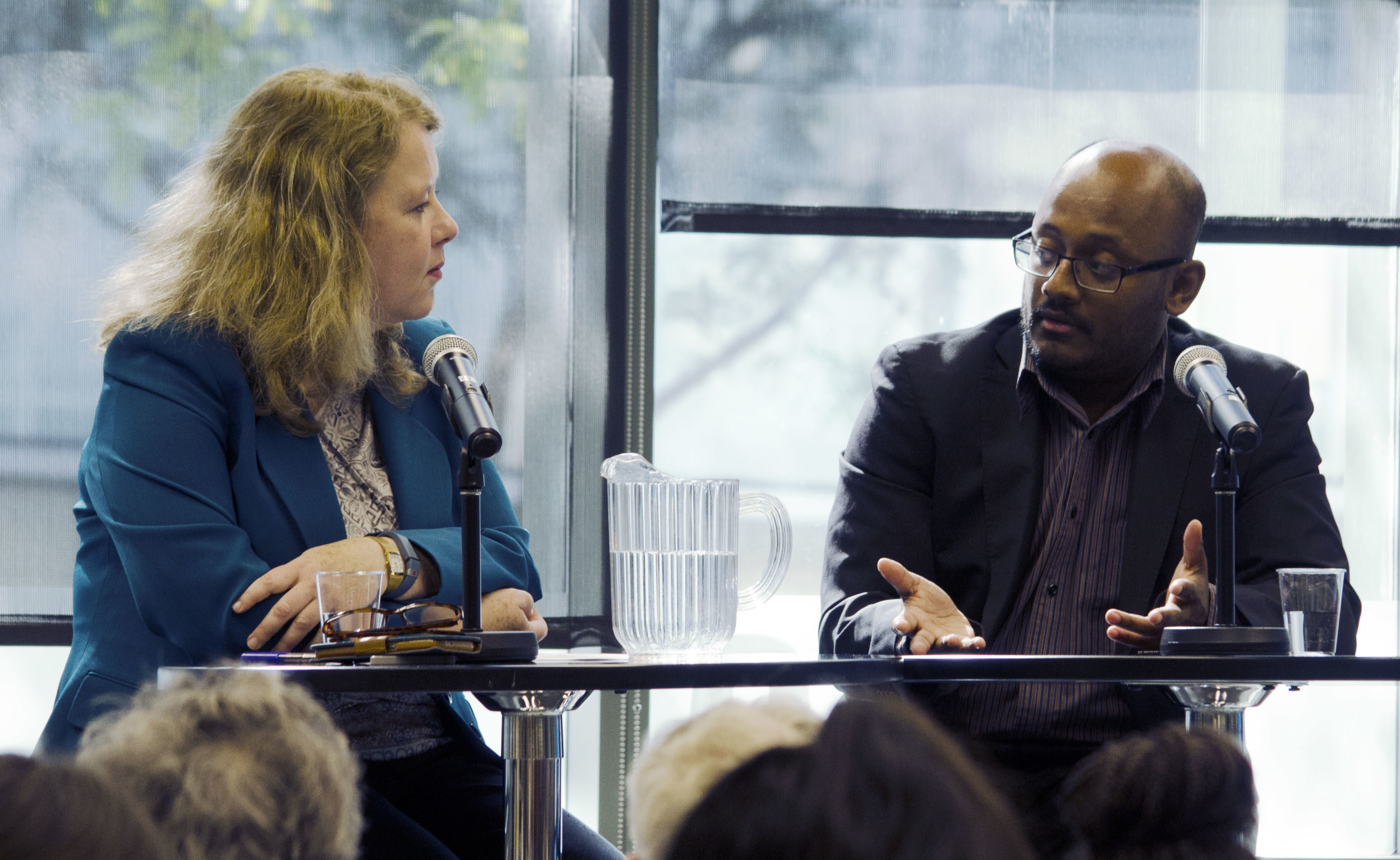By MADDIE BINNING
Special to the RJRC

Journalists reporting on extremist groups need to arm themselves with knowledge as neo-Nazi and terrorist organizations become more sophisticated in their messaging and media manipulation, a leading expert on radicalization told Ryerson journalism students.
Amarnath Amarasingam, a research fellow at the London-based Institute for Strategic Dialogue and at George Washington University, made the case for beat reporting, arguing that reporters need to be equipped with the knowledge and background to challenge the claims of extremists and to put their claims in context.
“Part of the problem with the alt-right is that they removed their white hoods and put on suit jackets,” he said during a recent Ryerson Journalism Research Centre event that focused on best practices for coverage of extremist views. “I don’t think they should be allowed to just kind of change that image without challenge.”
Journalists need to understand the context behind extremists’ beliefs and the movements they represent, said Amarasingam, who has written about radicalization and terrorism for publications such as The Atlantic and Huffington Post, and also edited Sri Lanka: The Struggle for Peace in the Aftermath of War and The Stewart/Colbert Effect: Essays on the Real Impacts of Fake News. He was interviewed onstage by Ryerson journalism professor Joyce Smith during the RJRC’s Oct. 5 event, “Covering extremism: Reporting News vs. Being Used.”
“There’s a history of these movements and an ideological backing which you kind of need to know,” Amarasingam said, “and I think sometimes if you don’t know that you can slip into very sloppy reporting, which in this issue particularly can (cause) a lot of damage.”
Drawing upon his own experiences being interviewed, Amarasingam said the journalists who ask the best questions and truly understand the context of their reporting are those working beats.
“This is my case for more beats,” he said. “It’s not even about go read a book, it’s go spend time with the people for long periods of time, and so then you start to report on the issues of the community and how this community interacts with international events a bit more clearly.”
Beat expertise, he suggested, also equips journalists to challenge claims by media savvy representatives of extremist groups so they aren’t given a free pass to spew lies, misinformation and racist propaganda. The CBC’s Power and Politics show, for instance, apologized this summer after guest host Hannah Thibedeau interviewed Proud Boy co-founder Gavin McInnes without challenging his views. Thibedeau said afterwards that viewers should have been informed about McInnes’ anti-Semitic sentiments and that she should have challenged claims he made during the interview.
Amarasingam said it is important to get representatives of neo-Nazi and other groups on the record clearly stating what they believe in – whether it is ethnic cleansing or the subjugation of women – so that their views are exposed and there is no confusion about what they represent.
Smith, whose research focuses on media and religion, said beat expertise also comes into play when reporters are looking for comment from Canadian Muslims for stories related to radicalization and the activities of extremist groups. Trying to find representative voices within Muslim communities, she said, isn’t as straightforward as covering an issue involving the Catholic church.
“There’s a phone book that tells you that this is the bishop…and you know that these are figures of authority that kind of have that stamp on them and you can say with some confidence that this is what Catholics think or this is the party line,” Smith said. “But the Muslim community is so diverse ethnically, language communities, theologically, that it’s really, really challenging to know until you spend more time researching it.”
Smith also cautioned against making uninformed assumptions about religious groups and their links to extremism.
“It’s important for us who are not part of these communities to make it our business (as reporters) to become more familiar with them.”
